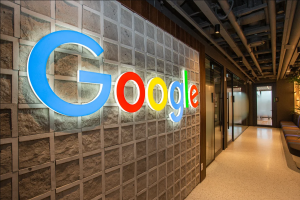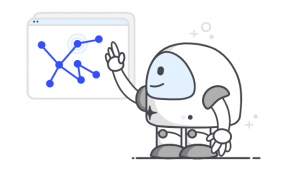No, Mark Zuckerberg Isn’t More Powerful than the President
![]() Never would I imagine the day would come when I’d have to, with a straight face, address the question as to whether or not the founder of a social network wielded more power than the head of state for the most powerful nation in the free world.
Never would I imagine the day would come when I’d have to, with a straight face, address the question as to whether or not the founder of a social network wielded more power than the head of state for the most powerful nation in the free world.
Austin Carr gave this ridiculous idea airplay today over at FastCompany today based on comments made by Soraya Darabi at Fast Company’s Most Creative People event.
[Darabi] explained that [Zuckerberg and Obama’s] power, at least in terms of reach of voice, is not so different. Darabi broke down the access to communication tools that Obama and Zuckerberg hold, comparing the old-age methods of the president (network TV, radio, newspapers, etc.) to Facebook’s reach as a social network.
According to the information we’re given by Carr, this answer is to a different question than the one Darabi was asked. The obvious answer (in case you too are unsure) is “not even close.”
There exists, within the President’s toolbox, a big red button that has the power to end all life as we know it on planet earth.
The most apocalyptic thing that Mark Zuckerberg could do would be to shut down Facebook’s service, creating what would eventually be known as a minor communications annoyance and the destruction of perhaps a few hundred million dollars of viable business in the United States and elsewhere. There is very clearly a difference in the amount of power both individuals wield.
Certainly, that is the most extreme examples of the power both men hold, but it’s because of the hypothetical extreme reaches of their power that each one of these men are afforded the respect and attention they do receive.
Darabi continued to misunderstand the fundamentally decentralized nature of communication on Facebook when she compared the platform for communication she imagines Zuckerberg has at his disposal.
"What fascinates me about social networks is there ability to scale," Darabi told audience members at Fast Company’s Most Creative People event recently. "Particularly one with more active users than constituents of the United States of America–we have to think about the power that the founders of these platforms have." Check out the whole video below.
Very few of us have peeked over the shoulder of Mark Zuckerberg to see what his account looks like and how many friends he has. One would assume, though, that he hasn’t bent the rules of Facebook to allow himself the ability to have more than the upper limit of 5,000 friends. Zuckerberg, then, doesn’t have at his disposal any more power to communicate to large groups than anyone else on his system (though he without question one of the most influential users of his own service). The channels of communication set up on Facebook are fundamentally different from those created on Twitter or even would-be competitor MySpace. Both of those were set up to be, to a certain extent, New Media equivalents to the Old Media broadcast model. Any user can have unlimited friends, and in general is encouraged to do so. In the case of MySpace, a broadcast account for the company itself (“Tom”) is automatically friended when you join the system.
![]() No such methodology is in play at Facebook, and is as a result much more decentralized. Schisms between large groups of users can and has been actually mapped out via graphings of the Facebook userbase.
No such methodology is in play at Facebook, and is as a result much more decentralized. Schisms between large groups of users can and has been actually mapped out via graphings of the Facebook userbase.
That’s a fairly academic rebuttal, and probably more than is required in this case. Upon further investigation of Soraya’s profiles on FastCompany, I tend to wonder about the amount of thought put into the whole thing. For instance, one of the quotes on Soraya’s profile on the website is from her former coworker Nicholas Kristof at the New York Times. Kristof, a columnist at the site, says: “The only reason I have nearly 1 million followers on Twitter and 150,000 fans on Facebook is Soraya’s guidance.”
I think, quite possibly, that the reason Kristof has that much of a following online might have more to do with the fact that he writes for a publication with immense and historic brand recognition, and less to do with tactics for gaining followers based on advice from Soraya.
Perhaps it’s an unfortunately phrased quote – if he’d said something along the lines of “Soraya’s the reason I’m on Twitter today,” that’d make more sense, but as Soraya’s current boss at drop.io would tell you, bragging about the number of followers you have is asinine.
Sam Lessin, the current boss to which I refer, put out a blog post over the weekend entitled “f*ck blogging: my last blog post.”
this blog is over because I believe giving away free content is disingenuous and blogging no longer fulfills my explicit ends. I am switching to a subscription newsletter.If it is worth it to you, fabulous – the content is going to be very good and very frequent, if not, no worries in the least. sign up for, $1.99 a month. I thought that there was ‘margin’ in the medium… meaning, more people that I cared about read and took blogs seriously per-unit of work/input. You could free-ride off the fact that a lot of wonderful people have 50 tabs open on their macbooks, and there wasn’t that much interesting being said on the tube. the point — volume should go down, but quality/volume should grow — and hopefully nothing will actually be lost and a lot gained
There were many reasons listed for his blogging cessation, but the key to all of them (I think) was that for him, there was no value in contributing to the commoditization of information on the web when he could derive personal value out of the content creation when distributed to a much smaller and more insular audience.
In other words, it’s not how many people you have paying attention, it’s who they are and how closely they’re paying attention.
To that end – does it matter, even if Mark Zuckerberg, in this mythical universe Soraya’s constructed, is able to command the attention of all 400 million Facebook users for thirty seconds each day for his singularly important message? Is this theoretical amount of communicative ability able to rival the President’s ability?
Obviously not.
A message from John Furrier, co-founder of SiliconANGLE:
Your vote of support is important to us and it helps us keep the content FREE.
One click below supports our mission to provide free, deep, and relevant content.
Join our community on YouTube
Join the community that includes more than 15,000 #CubeAlumni experts, including Amazon.com CEO Andy Jassy, Dell Technologies founder and CEO Michael Dell, Intel CEO Pat Gelsinger, and many more luminaries and experts.
THANK YOU













